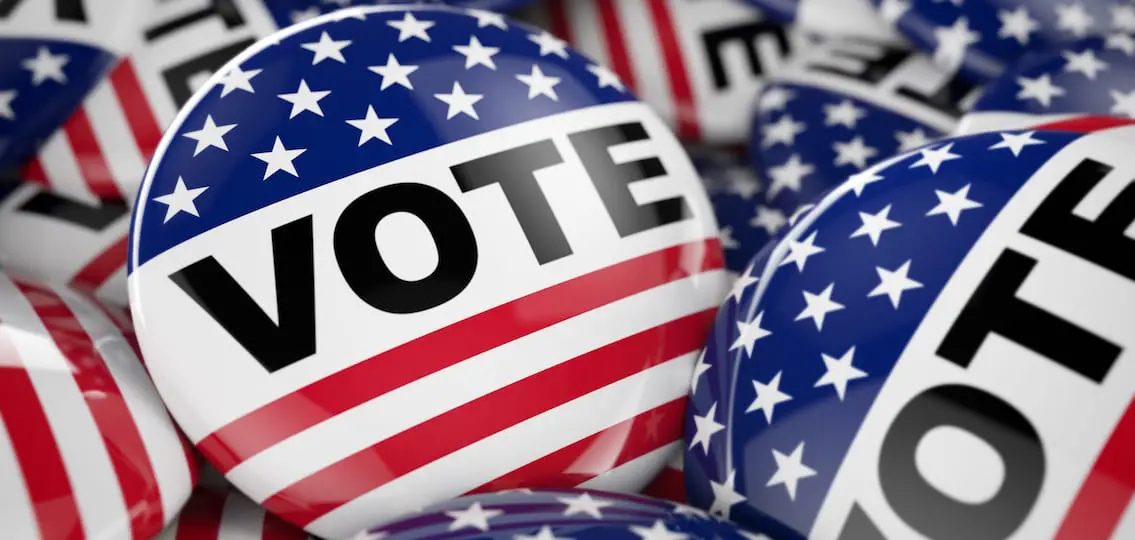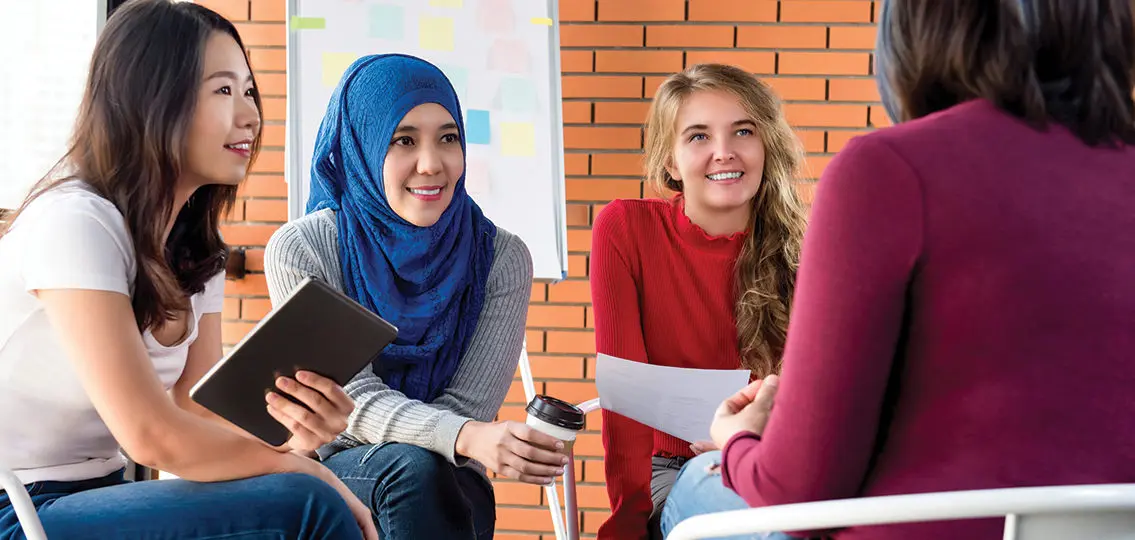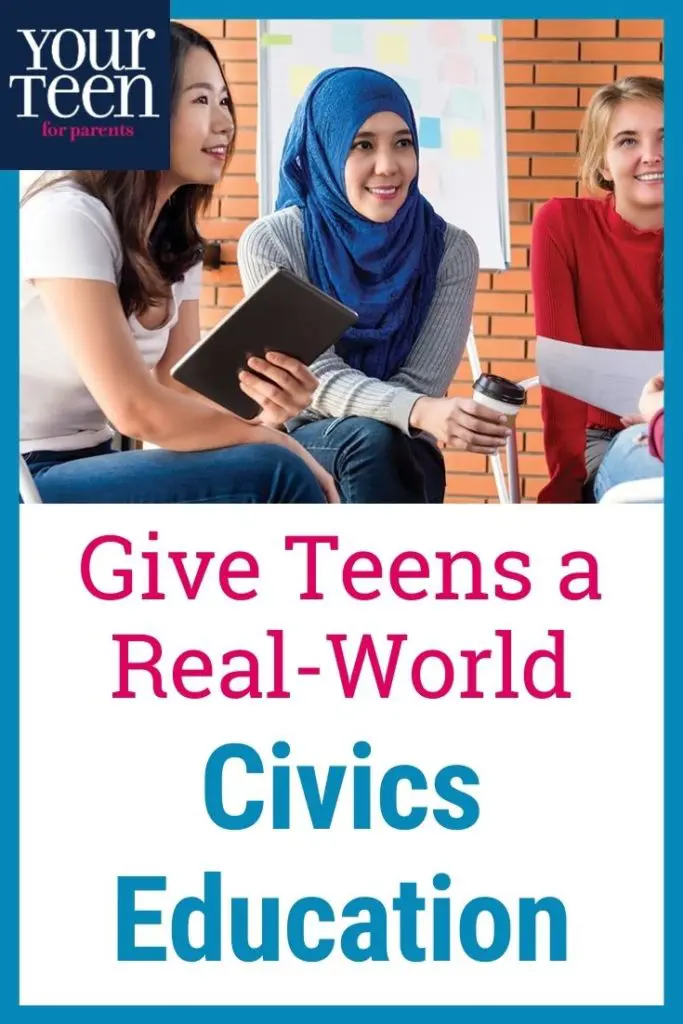This summer, I found myself between a rock and a hard place, parenting-wise. My 16-year-old son wanted to leave our house, where we had spent most of our time since March due to the spread of the coronavirus, to attend a Black Lives Matter protest. The downtown Nashville rally, which drew 10,000 people after the murder of George Floyd, was organized on social media in a matter of days by six local 14- and 15-year-olds. It was part of a nationwide call for racial justice. My son realized that history was happening, and he desperately wanted to be a part of it. My efforts to raise a good citizen conflicted with my worried about his safety.

After much discussion and debate, my husband and I decided to err on the side of caution and told him he needed to stay home because of our concerns about COVID-19. He spent the afternoon and evening glued to social media, following the protests virtually. Though he was disappointed he couldn’t be there, it gave us a chance to talk about what was happening. Together, we watched the sea of young faces in their protective masks—middle schoolers and high schoolers and their parents, of all races and backgrounds—demanding change. Something about this moment felt different, and it was being led by teens.
Teens are Engaging
The thousands of young people who joined the protests in big cities and small towns are part of something much larger happening across the country. After decades of apathy and turning away, this generation of young people, the most racially and culturally diverse and the most digitally connected generation in our nation’s history, are entering political life at a crucial moment. Influenced by activist teens like David Hogg, Greta Thunberg, and Malala Yousafzai, Generation Z is organizing around issues like climate change, gun violence, racial justice, and equal rights. Amid a global pandemic and in advance of a presidential election, teens are connecting with each other on social media to discuss these challenges, search for solutions, and demand change.
For decades, young voters, ages 18-29, have been the least likely to show up at the polls. And they’ve been the least likely to join political parties. But recently, teenagers of all political persuasions have been doing more than protesting. They’re running for office, meeting with Congress, and developing technology to solve social problems. A survey just released in June from the Center for Information and Research on Civic Learning and Engagement (CIRCLE) at Tufts University shows a surge in engagement:
- Three-quarters of young people age 18-24 are paying close attention to the upcoming presidential election
- 83% think that young people have the power to change the country
- One-third have attended a political protest, and half have encouraged others to vote
Younger teens are more politically involved as well. No longer content to be on the sidelines doing kid stuff, teenagers are at the forefront of a political movement. With the aid of the phones in their pockets and social media, teens are becoming political—often years before they are even able to vote.
Beyond Protests: Democracy in Action
Increased care and interest in public life is an undeniably good thing. Our system of government doesn’t work without participation. Civics educators and experts agree, however, that young adults need more tools in their toolbox than political protest. To maintain a democracy, citizens need to be able to translate hashtags into meaningful change like changing policies and laws. They need to be able to engage in civil discourse about possible solutions to challenges—especially with those who disagree with them.
Teens are at a crucial juncture in civic life and in American history, and they need adults, both teachers and parents, to help guide them. What teens need, especially now that they are engaged and activated in the public sphere, is civics education. Only one-quarter of eighth graders know enough about our country to earn a “proficient” score on the National Assessment of Educational Progress’s civics exam. For history, proficiency drops to 18%. Recent surveys show that 40% of Americans can’t name a single right provided by the First Amendment to the Constitution. One in four Americans were able to name all three branches of government, but a third can’t name a single branch.
Without a firm understanding of how our system of government works and our role in it, citizens are vulnerable to manipulation, mistruths, and misunderstandings. Americans aren’t likely to pick up the details of democratic government and how the electoral college works on their own. As former Supreme Court Justice Sandra Day O’Connor said, “Knowledge about our government is not handed down through the gene pool. Every generation has to learn it, and we have some work to do.”
Parents Matter
Schools can play a part in educating young people about civics. But research shows that in many ways the influence of parents matters more. Kids are more likely to be civically engaged, participating in activities like voting and volunteering, if their parents are.
In a study of adolescents and civic participation, developmental psychologist Marilyn Price-Mitchell, Ph.D., author of Tomorrow’s Change Makers: Reclaiming the Power of Citizenship for a New Generation, found that more than half of the civically-engaged teens she interviewed mentioned their parents as key supports to their development. Parents not only provided encouragement and support, but young people also noted that their parents were key to instilling important values, like perseverance and service to others.
Price-Mitchell recommends that parents see teens’ desire to attend protests or engage in politics on social media as a desire to be part of something bigger than themselves—something that should be encouraged during a time of strained democracy. But even talking to kids about political issues can be a learning moment. “When talking about politics, be careful to help your child think critically about issues rather than deciding that one candidate is ‘bad’ and another is ‘good,’” Price-Mitchell says. “Help them weigh issues and values. Let them decide for themselves about political party affiliations when they are old enough to vote.”
Real-World Civics Education
Whether through raising money, signing petitions, volunteering in the community, or participating in family discussions around the dinner table, research shows that teens who develop their civic identities early on are more likely to be civically-engaged adults. Adolescence is a time of life when young people are working to develop their adult civic identities, says Price-Mitchell. Parents can be important partners in that development.
Even during a global pandemic, when my son can’t play as big a role in the political community as he wants and the future of school this fall remains uncertain, we are still finding ways to continue his civics education. He’s participating online in the YMCA’s Youth in Government program through his school. And we’ve turned our nightly dinners together into current events sessions. We take turns talking and listening, considering different opinions, and planning our next steps to build a better democracy.
Here are some other ways that families can foster citizenship:
Lead by example — Vote
With young people concerned about our nation’s challenges and wanting to engage in public life, parents have an opportunity to step up and lead by example. “I think people have finally realized that we have incredible divisions in our country. And that’s grabbed people,” says Ted McConnell, director of the Campaign for the Civic Mission of Schools, a collaborative of civic organizations and experts that’s been advocating for better civics education in schools for more than two decades.
“Parents are kids’ first and best civics teachers,” McConnell says. “If you go vote, let them come and watch you. Talk to them about contemporary issues and model civility. Adults should be conscious of modeling good civic behavior.”
Get informed together
Parents can also show kids exactly what it takes to vote. Voting can often be a confusing and complicated process, especially during this time of coronavirus shutdowns. Amber Coleman-Mortley, the director of social engagement at iCivics and mother of three, makes voting a family value. Together with her kids, who are 12, 11, and 9, Coleman-Mortley reads up on the candidates and makes a list of who she’s planning to vote for before heading to the polls. Then they head to the polling place together, so her kids can walk through the steps with her.
“Make sure that you’re voting in an informed way; don’t just go vote,” she says. “Just seeing that process is enough to equip a child with the confidence to want to do it later when it’s their turn.”
Seek out other viewpoints
At this moment of deep polarization, Coleman-Mortley says helping kids out of their homogeneous circles and diversifying who they talk with and listen to is a “valiant civic act.” (It’s good for parents, too.)
Even if parents disagree with their teen’s political passion, she says, parents can use it as an opportunity to develop civic skills. Have teens present a research project to the family, for example, to illustrate their point (call it “Convince Me!”), or encourage kids to go out and gather neighborhood support. Maybe have them sign a petition or raise money for their favorite cause.
Get creative about activism
“Parents will want to direct that passion in a positive manner,” she says. “Parents have to be creative. We can say, ‘I get that you’re excited about this; how can we channel this into something meaningful?’” Perhaps you’re not comfortable with your teenager attending a protest due to the pandemic or other concerns about safety. Brainstorm other options together: Write letters? Create activist TikToks? Raise money for a cause or candidate? Collaborate with your teenager to find options that work for both of you.

Nonpartisan Resources
For more information about voting, visit these sites:
• Register, find your polling place, and see your ballot: vote411.org
• Learn about voting in your state: nonprofitvote.org/voting-in-your-state
• Get notified when Congress addresses your most important issues: issuevoter.org
• Engage young voters: rockthevote.org
• Help get voters registered: whenweallvote.org/takeaction
• Fact-check politicians and news: politifact.com





